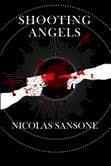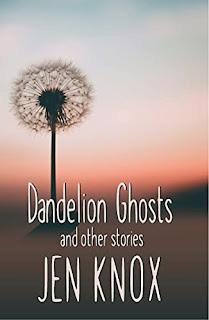And here it is...
Timothy Stelly’s HUMAN TRIAL (2009, All Things That Matter Press) and HUMAN TRIAL II: ADAM’S WAR (2010, All Things That Matter Press), present the tale of a ragtag group of survivors of an alien-launched thermal war that has destroyed nearly all human amd animal life on the planet. HUMAN TRIAL raised the question, What happens when all that remains of the world is fear, distrust and desperation? HT II follows the group on a cross-country trek that results in a final, frenzied battle against the extra-terrestrial invaders.
Reviews for part one of Timothy Stelly’s sci-fi noir thriller, Human Trial, have been positive. Readers and critics from the U.S. and Canada have praised the book for its grittiness and frightening tenor.
“…Superb. It's as if I'm one of the 10 going through the same trials they are. I can hardly wait to read the next installment.”—T.C. Matthews, author oif What A Web We Weave
“The book scares me because of the possibility of this happening in our future and how we will handle it. Scary. Deeply thought out…Timothy definitely has his own voice and it is powerful.” —Minnie Miller, author of The Seduction of Mr. Bradley
“Human Trial was a well written, well thought out book with plenty of biting, satirical social, religious and racial commentary interspersed within the dialogue. The drama, and the pathos, were nonstop, and I never knew what to expect next.” –Brooklyn Darkchild, author of This Ain’t No Hearts and Flowers Love Story, Pt. I & II
“[This] story has been haunting me-reminds me of Octavia Butler's 'Parable of the Sower’…Stelly's work haunts me two years after I read it.”
--Evelyn Palfrey, author of Dangerous Dilemma and The Price Of Passion
“4 out of 5 stars. I felt the echoes of other notable science fiction novels, including "Parable of the Sower" by Octavia Butler, "Lucifer's Hammer" by Larry Niven and Jerry Pournelle, and "Manhattan Transfer" by John E. Stith. Timothy Stelly creates a believable milieu of small-town America being turned upside down by forces beyond comprehension, and puts the reader right in the middle of the action.—Claxton Graham, Amazon.com review
“Human Trial is at once a sci-fi story, a look at the psychology of survival, and a timely cautionary tale regarding current environmental woes; our individual and collective responsibility to one another and to the planet…It is an entertaining and intricate story that can be read and enjoyed along with the likes of Mitchener, King, or Peter Straub. Stelly intuitively knows what everyday people will do to survive and how their interactions with each other will sound.”—Brian Barbeito, Columnist Useless-Knowledge.com and author of Fluoride And The Electric Light Queen
“Gritty and intense, Human Trial will leave you stupefied and terrified, neither of which will protect your gut from wrenching. The message finally revealed is not only horrifying, but real, as is the omen foretold. Turning tables and unbalanced scales foster confusion and terror in an epic far greater than its words.” - Brian L. Doe, Author, The Grace Note, Barley & Gold; Co-Author, Waking God Trilogy
“Oh the suspense, the drama, the intensity, the love I’m having for this story…trust indeed that my adrenaline cannot go any higher. This will be a series finale you don’t want to miss.” – Walee, author of Confession Is Good For The Soul and What’s On The Menu? All Of Mw!
BIOGRAPHY
Timothy N. Stelly is a poet, essayist, novelist and screenwriter from northern California. He describes his writing as “socially conscious,” and his novel, HUMAN TRIAL,is the first part of a sci-fi trilogy and is available from Amazon.com, allthingsthatmatterpress.com and in e-book format at mobipocket.com. Reviews of HUMAN TRIALcan be read at amazon.com
HUMAN TRIAL II: ADAM’S WAR (All Things That Matter Press) is scheduled for release in MAY, 2010. Stelly also has a short story included in the AIDS-themed anthology, THE SHATTERED GLASS EFFECT (2009) . His story SNAKES IN THE GRASS, Is a tale of love, betrayal and its sometimes deadly consequences.
In 2003, Stelly won First Prize in the Pout-erotica poetry contest for his erotic piece, C’mon Condi.
Contact Info: www.stellyhumantrial.com. stellbread@yahoo.com
Both books available at amazon.com, barnesandnoble.com and allthingsthatmatterpress.com
Human Trial is still available from amazon.com and allthingsthatmatterpress.com. Paperback
$18.99, e-book (kindle) format, $10.99.
Read the Brian Barbeito review of HUMAN TRIAL at: http://www.useless-knowledge.
"Writer's block is a fancy term made up by whiners so they can have an excuse to drink alcohol." -- Steve Martin



















